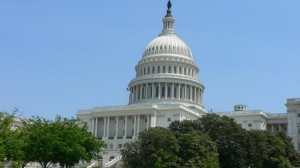 An Iranian lawmaker says a new anti-Iran sanctions bill drafted by a number of US Senators is a scenario by Washington to elicit more concessions from the Islamic Republic.
An Iranian lawmaker says a new anti-Iran sanctions bill drafted by a number of US Senators is a scenario by Washington to elicit more concessions from the Islamic Republic.
“This game is aimed at winning more concession from the Islamic Republic of Iran,” said Member of Iran’s Majlis National Security and Foreign Policy Committee Ahmad Shohani on Saturday.
“The US has well realized that the Islamic Republic is an influential country,” he added.
On December 19, a group of Democratic and Republican Senators introduced new legislation to impose further sanctions against Iran if the country breaches the terms of a nuclear deal reached last month in Geneva.
Chairman of the Senate Foreign Relations Committee Sen. Robert Menendez and Sen. Mark Kirk wrote the bill, which proposes boycotting Iranian oil exports within a year and the blacklisting of Iran’s mining, engineering and construction industries.
The Senate bill also calls for “diplomatic, military and economic support” to Israel if Tel Aviv decides to launch an attack against Iran.
The Islamic Republic has repeatedly warned against the ramifications of the new sanctions bill and said that it will scupper Tehran’s nuclear deal with six world powers reached in November 2013, which prohibits any new nuclear-related sanctions against Iran in the course of six months.
The administration of US President Barack Obama has also said that the new sanctions scenario would damage the talks between Iran and the world powers and has threatened to veto the bill.
Shohani described the purported disagreement between the White House and the US Congress over the sanctions bill as a sort of election rivalry, noting, “Both political parties in the US know that resolving the issue with Iran is an advantage; therefore, the Republicans do not want the point to be scored under the Democratic administration.”
The Iranian legislator further said that the Geneva deal refutes claims by US officials that Iran is not willing to enter dialog over its nuclear energy program.
By Press TV
The Iran Project is not responsible for the content of quoted articles.

 QR code
QR code